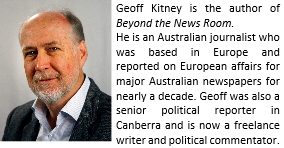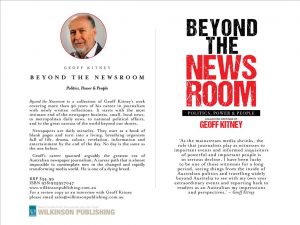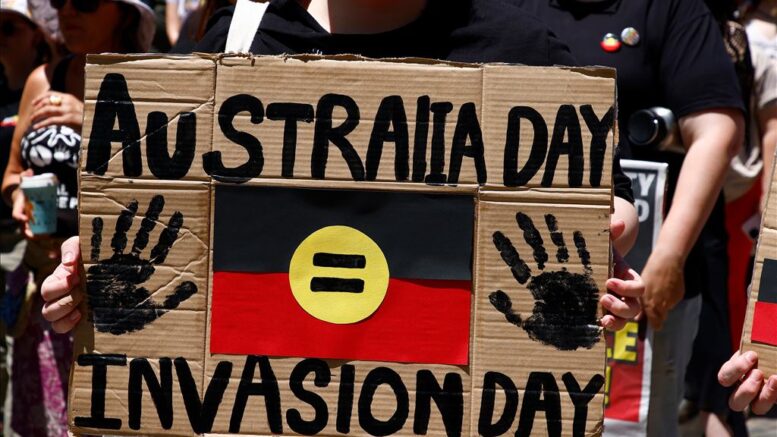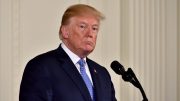Britain’s exit from the EU, the death of Queen Elizabeth and debate about Australia’s colonial history have led to growing calls for Australia to become a republic.
When the Brexit bandwagon was rolling along at full speed, before it ran off the road, conservatives around the world were joining the crowd cheering it on. In Australia, some of the nation’s most prominent political figures joined the chorus with gusto.
Some – including former conservative Prime Minister, Tony Abbott, and former Liberal Party leader and long-serving foreign minister, Alexander Downer – were rewarded for their support with jobs helping the Conservative government to implement the Brexit changes.
Australian voices loudly endorsed the idea that Britain, liberated from its European Union entanglements, would be a powerful part of a rejuvenated Anglosphere which would restore the English-speaking nations to world leaders in promoting democracy and free trade.
Three years after the UK left the EU, and with Brexit increasingly looking like a disastrous mistake for the UK, there is little obvious sympathy coming from Australia. In fact, Brexit seems to be accelerating the pace of separation
Hope springs eternal and, despite all that has gone wrong with Brexit and with the collapse of political support for the Tories and their Brexit promises, those antipodean Brexiters still insist that it is only a matter of time before promise turns to reality. One gets the feeling that they may end up being the last Brexit supporters standing when the project finally fades into history, leaving nothing but a trail of wreckage and failed dreams.
But one of the many miscalculations of those responsible for the Brexit project was to mistake those big colonial political voices supporting Brexit for widespread, deep support beyond Britain’s shores which would result in Anglosphere countries giving the Brexit project a helping hand.
One of the core ideas of Brexit was that, by leaving the European Union, Britain would be free to become a global leader in promoting and benefitting from free trade. “Global Britain” was a catchcry echoed by Brexit’s Antipodean urgers.
In fact, the reality of this false promise dawned quickly.
Jonathan Haskel, an external member of the Bank’s monetary policy committee, said that the “productivity penalty” resulting from Brexit equated to about £1,000 per household, or 1.3 per cent of gross domestic product. https://t.co/shfE8902qy
— Chief-Exec.com (@Chief_Exec_com) February 13, 2023
Within months of the beginning of Britain’s quest for the dozens of free trade deals which then prime minister Boris Johnson and his cohorts said would be the launch pad for “Global Britain” it became apparent that Britain’s putative Anglosphere free trading partners did not actually see things the way the Brexit team did.
The United States backed right away from a free trade deal with the UK. Countries like Australia pulled a three-card trick on the UK, promising to go ahead with a free trade deal but then taking its UK negotiating partners to the cleaners, recognising that Britain was in a very weak negotiating position which Australia could take advantage of.
When a deal was done and announced, it quickly became obvious that it was a much better deal for Australia than the UK. British farmers, in particular, were dudded.
The reality of the free trade deal was that it was much more important to the UK than it was to Australia.
It proved what trade experts had warned the UK about from the outset, when it promised that free trade agreements would open the door to a great trading future: in trade negotiations, always back self-interest!
While Anglophile Australian supporters of Brexit saw the departure of the UK from the EU as opening the door to restoring the Anglo-Australian relationship to its former glory, the reality was that Australia had matured and now had interests far removed from the days when it was tied to the UK’s apron strings.
Three years after the UK left the EU, and with Brexit increasingly looking like a disastrous mistake for the UK, there is little obvious sympathy coming from Australia.
In fact, Brexit seems to be accelerating the pace of separation.
The coincidence of the death of Queen Elizabeth, the accession of a much less popular King Charles and the increasingly farcical goings-on in British politics have led to questioning of the value of Australia’s colonial past. This and the ever increasing expansion of multicultural Australia through Asian immigration, together with the deepening of Australia’s strategic focus in the Pacific and engagement with the United States in the Asia Pacific region have made more tenuous the once powerful personal and emotional ties between Australians and the British.
A major consequence of all this is a resurgence of activism for Australia to cut its final constitutional tries to the UK and to become a republic.
Polls show a clear majority of Australians want a republic and would like a national referendum on the issue.
The recently elected Labor government has appointed a cabinet minister for a republic whose task it will be to prepare for a new vote. (A previous referendum in the mid-90s was defeated.)
The annual celebration of Australia Day on January 26 confirmed that Australians increasingly want a national identify which reflects contemporary Australia rather than its historic “white, British colonial” identity.
Australia Day commemorates the arrival of the First Fleet of British settlers in 1788 and the raising of the Union Flag on Australian soil by Captain Arthur Phillip to claim Australia for Britain. Aboriginal Australians refer to it as “invasion day” and a day of great sorrow for the Aboriginal race.
Increasingly, polls show that Australians agree with the indigenous population that January 26 is an inappropriate day to be celebrated as Australia’s national day. They point out that of all the nations with British colonial settlement, Australia is the only one that celebrates the day of British settlement as their national day.
There has been a growing view in this debate that Britain has failed to properly acknowledge the consequences for indigenous Australians of British colonialism – a point controversially made recently by Australian Foreign Minister Penny Wong on her first official visit to the UK.
Polls show a clear majority of Australians want a republic and would like a national referendum on the issue
All of this is setting the background for a national referendum in August this year which proposes to give Aboriginal people a Constitutional right to “a voice” in the affairs of the nation through a mechanism to represent their views to the national Parliament.
The proposed referendum has sparked an increasingly intense debate about Australia’s national identity and the plight of Aboriginal people as a consequence of British settlement.
It has also raised the level of debate about Australia’s modern connections with Britain and intensified discussion of the idea of an Australian republic in which King Charles would be replaced as head of state by an Australian.
The battle lines for the debate on these issues seem to be between older Australians with historic family and other ties with Britain and younger Australians who no longer feel these connections.
What is already clear as these debates grow in intensity is that the now clear decline of Brexit Britain is going to make it harder for those wanting to maintain the historic links between Australia and the UK to make their case.
It seems increasingly likely that, long before Brexit Britain finds its place in the affairs of the world, Brexit fallout will have contributed to the breaking of traditional ties that have bound Britain and Australia for nearly 250 years.
Headline image credit: Joe Kuis/Shutterstock






